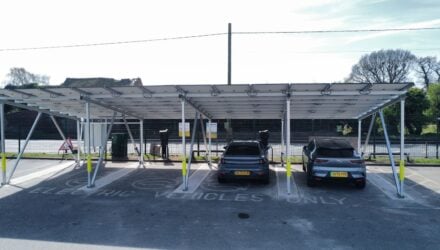
WAKE: UKLPG urge Chancellor to act
This week’s Budget should be used by the Chancellor to reverse plans to reduce the duty differential for LPG, trade association UKLPG have insisted.
George Osborne, claim the association, should maintain the duty at current levels until 2024, and support long-term investment in the availability of LPG.
The move would, UKLPG insist, give drivers the confidence to convert to LPG and ‘benefit from greener, more cost-effective motoring’.
Lisa Thomson, Director of Communications and External Affairs at UKLPG, said: “Despite both the environmental and financial benefits that Automotive LPG offers, the UK government has consistently overlooked the positive impact this fuel can make when it comes to cutting urban pollution.
“We don’t want this year’s budget to be another lost opportunity to exploit the full potential of this low cost, low carbon, widely available fuel.”
Lisa Thomson, UKLPG
“As the most widely available low carbon, alternative fuel available to motorists today, maintaining the fuel duty for LPG in the longer term represents an enormous opportunity to support greener motoring in both the short and long-term.
“The infrastructure and fuel are there and more than 160,000 motorists have already converted their vehicles, helping to cut pollution in our inner cities and the UK to deliver its carbon reduction targets more quickly.
“Millions of motorists in Europe use LPG fuel in their cars and the benefits have, for too long, been ignored by successive budgets in the UK, despite the evidence stacking up that it has the potential to really make a positive impact on reducing harmful emissions.
“By maintaining the fuel duty for the long-term, the Chancellor can deliver these benefits to the UK today, without expensive investment in infrastructure.
“We don’t want this year’s budget to be another lost opportunity to exploit the full potential of this low cost, low carbon, widely available fuel.”


















